
Foraging is tough business with snow on the ground, which is why our wintertime bird visitors benefit from high-energy food options.
Even during subzero conditions, birds have special ways of keeping warm. Some fliers, such as finches and chickadees, pack on as much as 10% body fat from eating berries and insects in fall to build up their winter stores.
But many visitors appreciate an extra food boost. Plan ahead to keep your backyard birds fed when the weather turns cool.
Top-Tier Seeds
“When the weather is colder, the birds appreciate those fatty seeds, says Emma Greig, project leader for Project FeederWatch at the Cornell Lab of Ornithology. She notes that fat is critical to meet birds' caloric needs.
“An easy bird feed is black oil sunflower seeds,” Emma says. The seed is popular with most birds that winter in the northern regions and is typically easy to find in feed stores or even grocery stores.
This story is from the December 2021/January 2022 edition of Birds & Blooms.
Start your 7-day Magzter GOLD free trial to access thousands of curated premium stories, and 9,000+ magazines and newspapers.
Already a subscriber ? Sign In
This story is from the December 2021/January 2022 edition of Birds & Blooms.
Start your 7-day Magzter GOLD free trial to access thousands of curated premium stories, and 9,000+ magazines and newspapers.
Already a subscriber? Sign In
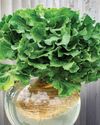
Basics of Hydroponics
Use these top tips and plant picks to have a successful soil-free garden
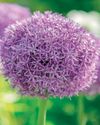
Rooted in Resilience
These hardy perennials will thrive in most zones
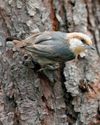
Social and Supportive
Brown-headed nuthatches take a helpful approach to raising their young
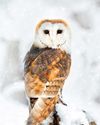
All About Owl Pellets
And why you should give a hoot about them
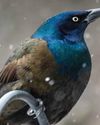
Ask the Experts
Advice from our pros about houseplants, bird feeding and more

BRING THE OUTDOORS IN
Making a terrarium is about as close as you can get to a Zen DIY project. Once you have gathered the proper materials and squared away your plant selections, it's as simple as layering it all together and watching your mini ecosystem thrive. Here, I'll walk you through my foolproof process and cover all the required elements for good filtration, healthy soil, strong root growth and resistance against fungus and disease.

GROW THIS. NOT THAT
Six easy-to-grow houseplants—and six that may not be the right choice for you
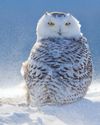
Winter MAGIC
Forecasts may be frigid, but grab your binoculars because birding opportunities are still incredible
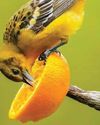
Sense or Nonsense? - Why some birds can taste and smell - but others can't
Does a porcelain berry taste like a blueberry to a gray catbird? Does a block of lard smell like frying bacon to a northern flicker? The short answer is no. While some avian species do have a well-adapted sense of taste or smell, they can't distinguish between flavors and odors the way humans can. They're not picking up every ingredient in the suet you put out, says José Ramírez-Garofalo, an ornithology researcher at Rutgers University in New Jersey and the director of Freshkills Biological Station in Staten Island, New York.

Maple Mania - Amazing facts about this fall foliage mainstay
Amazing facts about this fall foliage mainstay